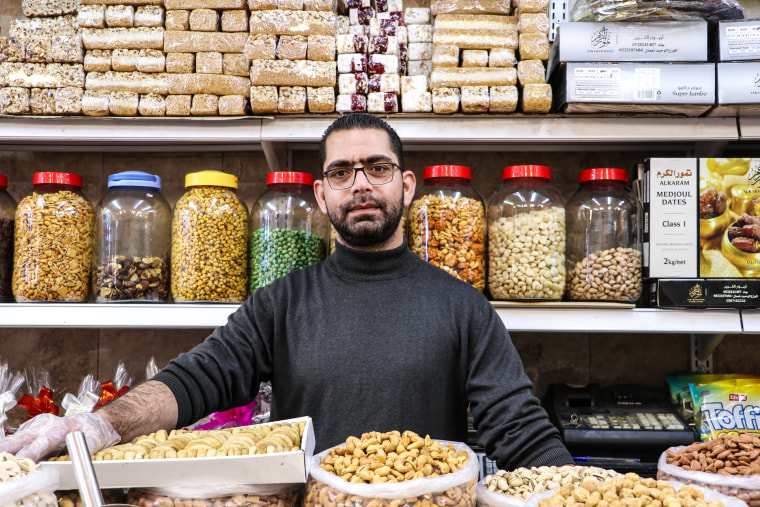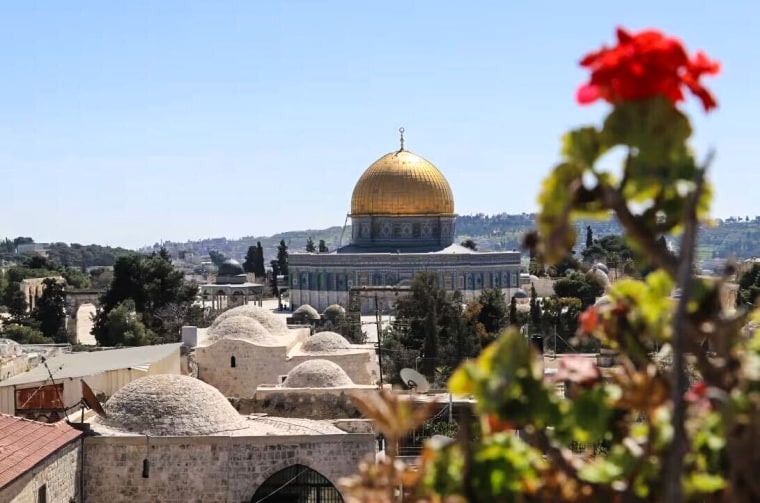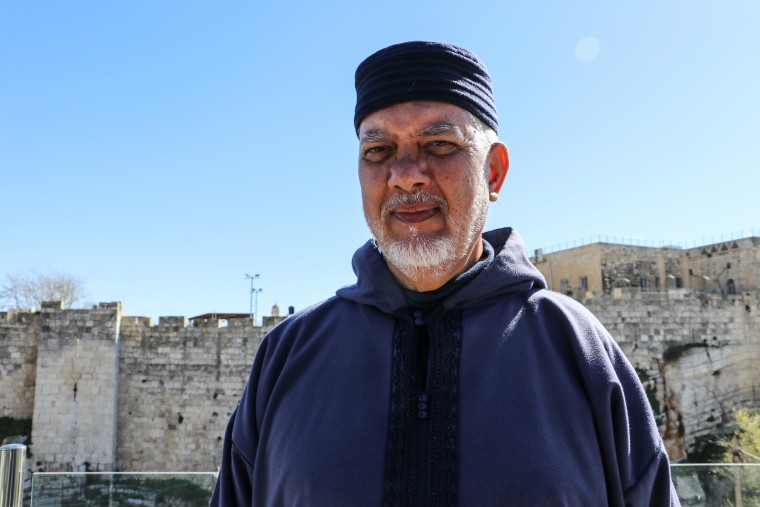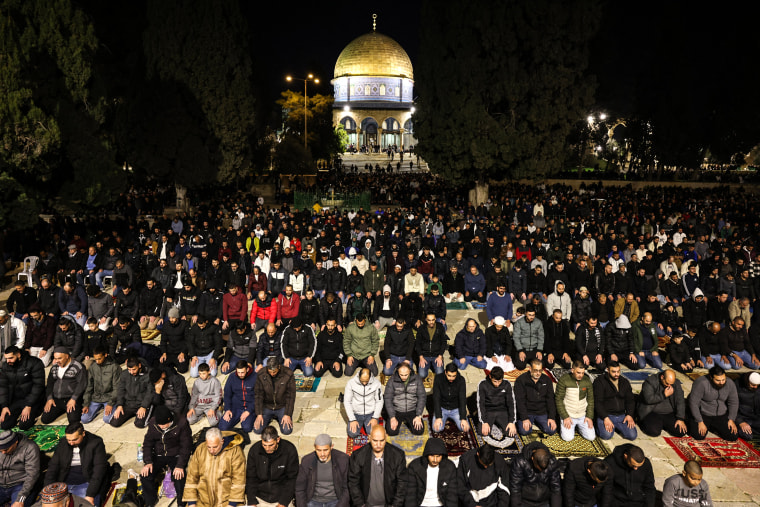
JERUSALEM — The sun was shining over the streets of Jerusalem’s Old City on Monday as the first full day of Ramadan began — but with no cease-fire in sight, the war in Gaza cast a heavy shadow over the start of the holy month, with fears of tensions rising around the revered Al-Aqsa mosque.
Israeli border police patrolled the streets of the Old City’s Muslim quarter — an area that is usually bustling with people and adorned with lights, lanterns and decorations during Ramadan.
On Monday, it was markedly quiet, with no signs of celebration as small groups of worshippers made their way to Al-Aqsa, the third-holiest site in Islam, for noon prayers.
For Muslims around the world, Ramadan is “the most important month for us,” shopkeeper Jamil Halwani said. But this year, he said, the usual “joy of Ramadan,” a time of fasting, prayer, service, introspection and gathering, was absent.

“We want to decorate,” but “what we see in Gaza — it will not allow us,” he said as Ramadan began with no sign of a cease-fire deal that would mean the release of hostages held by Hamas and a halt to Israel’s offensive in the enclave, during which more than 31,000 people have been killed amid growing fears of a famine.
“This is the only thing we can do for Gaza as Jerusalemites, is not to decorate,” he sighed.
Halwani, 38, said many also feared a rise in tensions and possibly violence in East Jerusalem if Israeli authorities block worshippers from accessing Al-Aqsa during the month of Ramadan.
“Without Al-Aqsa mosque, we are nothing. Even if they will beat us or arrest us, we have to go and pray,” he said.
Already, on Sunday, at least one clash was reported, with the Palestinian Information Ministry saying Israeli authorities blocked young men from accessing the mosque’s compound as they made their way there for the first Taraweeh, an evening prayer held each night of Ramadan.
Video circulated on social media showed a large crowd of people being blocked from accessing one of the gates leading to the mosque, with at least two officers appearing to strike at people with a baton as the group was pushed back. NBC News verified the videos using geolocation. Israeli authorities did not respond to a request for comment on the incident.

Israel has maintained increasingly tight control of the mosque’s compound in recent years and in the wake of Hamas’ Oct. 7 attacks.
In the weeks leading up to Ramadan, the Israeli government had been unclear about whether it would look to impose new limits on access to the Al-Aqsa compound during the holy month. But last Tuesday, Israeli Prime Minister Benjamin Netanyahu’s office said no new restrictions would be enforced, despite calls from far-right National Security Minister Itamar Ben-Gvir for severe restrictions.
Following Sunday’s clash, the Palestinian Information Ministry said it was “noteworthy that the occupation forces have imposed a strict siege on Al-Aqsa Mosque for five months and prevented entry to it.”
Mustafa Abu Sway, a Palestinian scholar who delivers lectures at Al-Aqsa mosque and is a member of the Islamic Waqf council, which administers the site, said he feared Sunday night’s incident was a sign of more to come.

“Already, Netanyahu said that there will be no restrictions — already they violated this,” he said. “Already, there are restrictions in place.”
Abu Sway said he worried it would not be safe for boys and young men to visit the Al-Aqsa compound in the weeks ahead, and he said it would be “devastating” for young people to have to avoid the sacred site.
Chuck Freilich, a former deputy national security adviser in Israel, said that in a time of heightened tension, unwarranted restrictions on access to Al-Aqsa during Ramadan could risk sparking a “broader confrontation — and one with direct religious overtones.”
“Jerusalem is a tinderbox to begin with,” he said. “Jewish, Muslim or Christian, it raises emotions on all sides.”
Hamas has often invoked violence at Al-Aqsa mosque in its efforts to incite uprisings, also naming its Oct. 7 attack the “Al-Aqsa Flood.”
Freilich said that so far, Hamas appears to have largely failed to “ignite tensions in Jerusalem,” but he said it was possible the group could continue to try to use Ramadan as a “flashpoint.”
Daniel Seidemann, a Jerusalem-based lawyer and expert on the region, said the feeling in the Old City was more “one of sobriety, despair” and “anger” over the war in Gaza more than anything else.

“This is a month of introspection, sanctity, family,” and yet, he said, “through no fault of its own, Ramadan has turned into a lightning rod of the conflict.”
Manal Abedaya, 20, said Monday after having visited the mosque: “It’s a very sad Ramadan. Everyone is very sad about what’s going on in Gaza.”
She said she would try to stay “optimistic” that the situation might change during the month of Ramadan.
“It’s just the first day,” she said.
“Let’s wait and see what’s going to happen.”